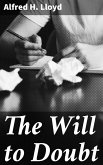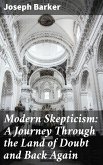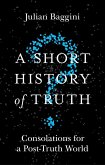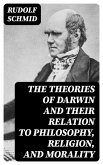In "The Will to Doubt," Alfred H. Lloyd masterfully navigates the philosophical landscape of skepticism and inquiry, challenging readers to interrogate the very foundations of their beliefs. Employing a blend of analytical prose and reflective discourse, Lloyd delves into the principle of doubt as not merely a negation of certainty but as a transformative catalyst for intellectual growth. Situated within the broader literary tradition that embraces existential and philosophical questioning, this work emerges as a vital contribution to early 20th-century thought, resonating with contemporaries who grappled with the implications of modernity and the search for truth in an increasingly complex world. Alfred H. Lloyd was a prominent philosopher and educator at the University of Michigan, renowned for his contributions to ethics and epistemology. His engagement with skepticism stems from a rich intellectual background that encompassed both rigorous academic inquiry and a keen interest in the philosophical underpinnings of human experience. Lloyd's ability to traverse diverse philosophical landscapes reflects his commitment to understanding and articulating the role of doubt in the pursuit of knowledge and personal integrity. I highly recommend "The Will to Doubt" to anyone interested in philosophy, critical thinking, or the exploration of personal beliefs. Lloyd's incisive reflections encourage readers to embrace the power of doubt as a necessary precursor to enlightenment, making this work an invaluable resource for scholars and inquisitive minds alike.
Dieser Download kann aus rechtlichen Gründen nur mit Rechnungsadresse in A, B, BG, CY, CZ, D, DK, EW, E, FIN, F, GR, H, IRL, I, LT, L, LR, M, NL, PL, P, R, S, SLO, SK ausgeliefert werden.









